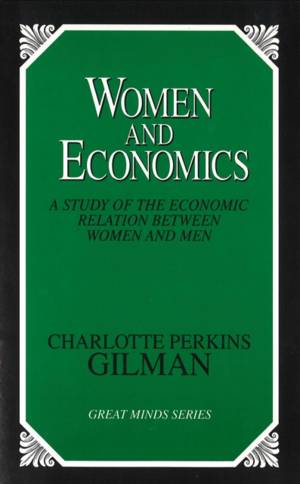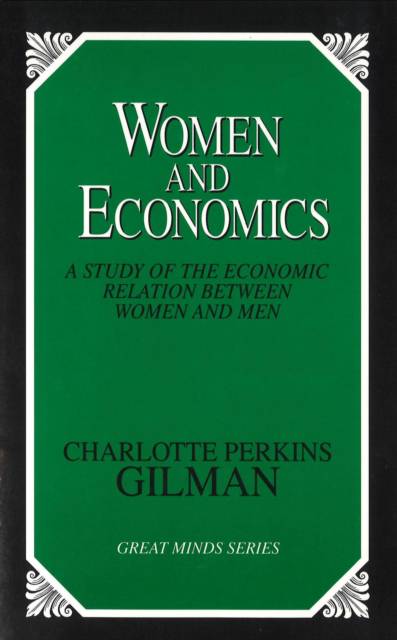
- Afhalen na 1 uur in een winkel met voorraad
- Gratis thuislevering in België vanaf € 30
- Ruim aanbod met 7 miljoen producten
- Afhalen na 1 uur in een winkel met voorraad
- Gratis thuislevering in België vanaf € 30
- Ruim aanbod met 7 miljoen producten
Zoeken
€ 29,95
+ 59 punten
Uitvoering
Omschrijving
Charlotte Perkins Gilman (1860-1935) was an ardent feminist and outspoken champion of women's rights. In this profoundly insightful and cogently argued work, Gilman describes how the social and sexual disparities between men and women, long thought to be preordained and unchanging, are actually the result of economics. The position of women as the property of men, their inability to earn in proportion to the amount of work they do, and the very devaluation of their work, all tend to the exaggerated social differences between men as "providers" and "competitors" and women as "helpless" and "unproductive." These differences lead to social dysfunction and ultimately to the destruction of the bond that ought to exist between and unite the sexes. Gilman's classic plea for greater parity for men and women still speaks directly to the problems women continue to face in the workplace as well as to the ways men view women.
Specificaties
Betrokkenen
- Auteur(s):
- Uitgeverij:
Inhoud
- Aantal bladzijden:
- 353
- Taal:
- Engels
- Reeks:
Eigenschappen
- Productcode (EAN):
- 9780879758844
- Verschijningsdatum:
- 1/05/1994
- Uitvoering:
- Paperback
- Formaat:
- Trade paperback (VS)
- Afmetingen:
- 136 mm x 216 mm
- Gewicht:
- 449 g

Alleen bij Standaard Boekhandel
+ 59 punten op je klantenkaart van Standaard Boekhandel
Beoordelingen
We publiceren alleen reviews die voldoen aan de voorwaarden voor reviews. Bekijk onze voorwaarden voor reviews.











